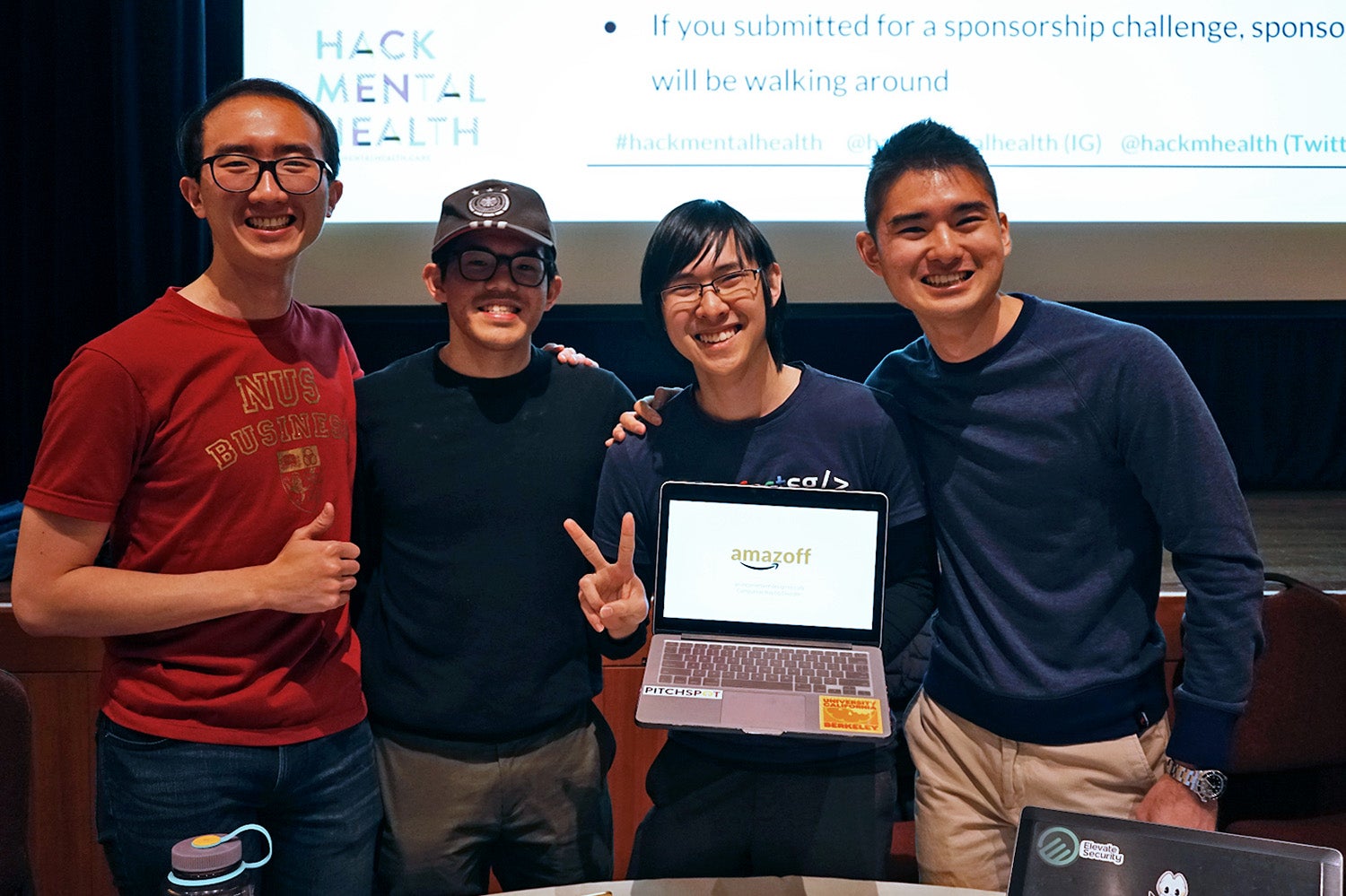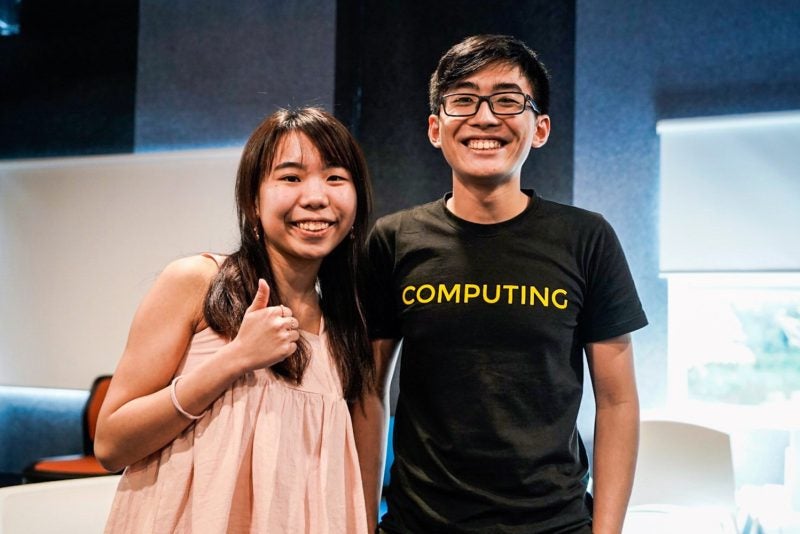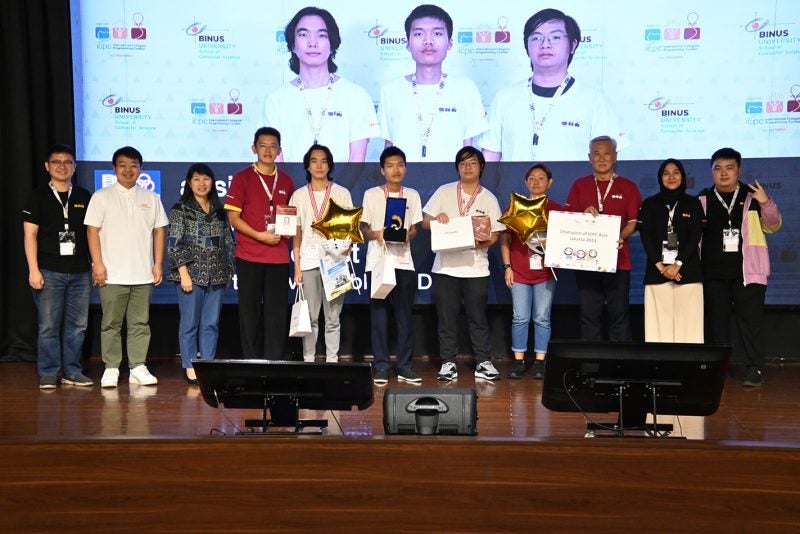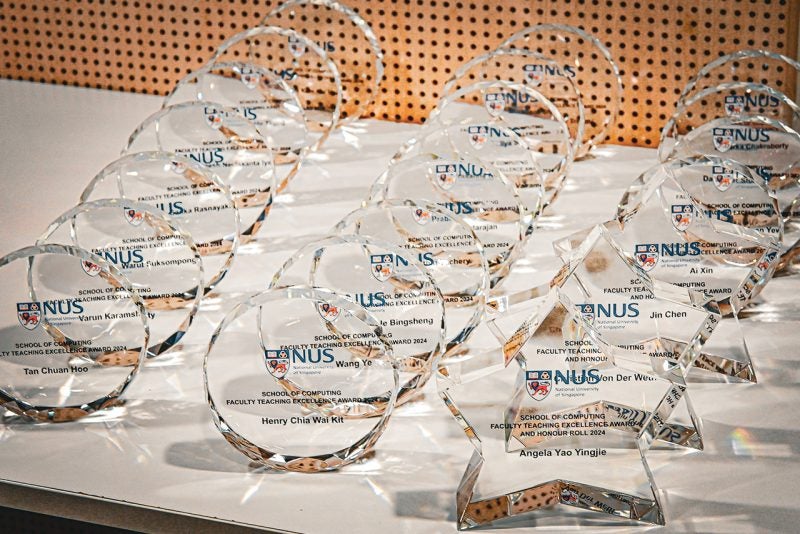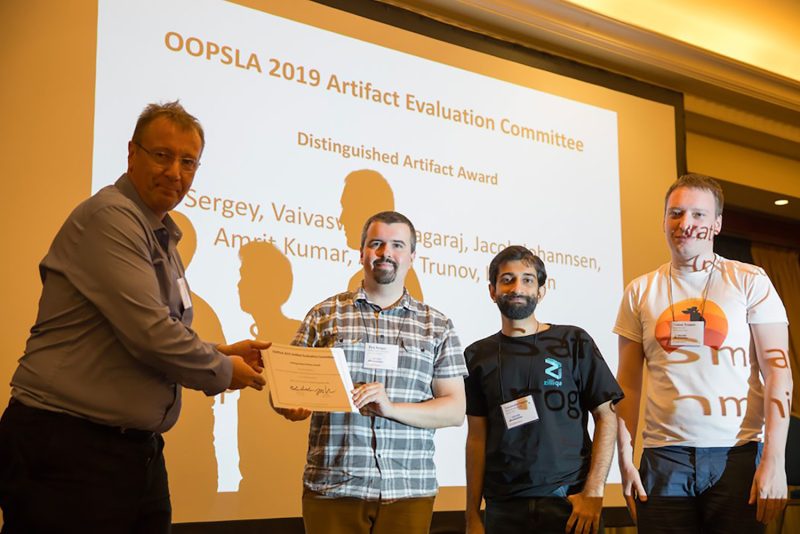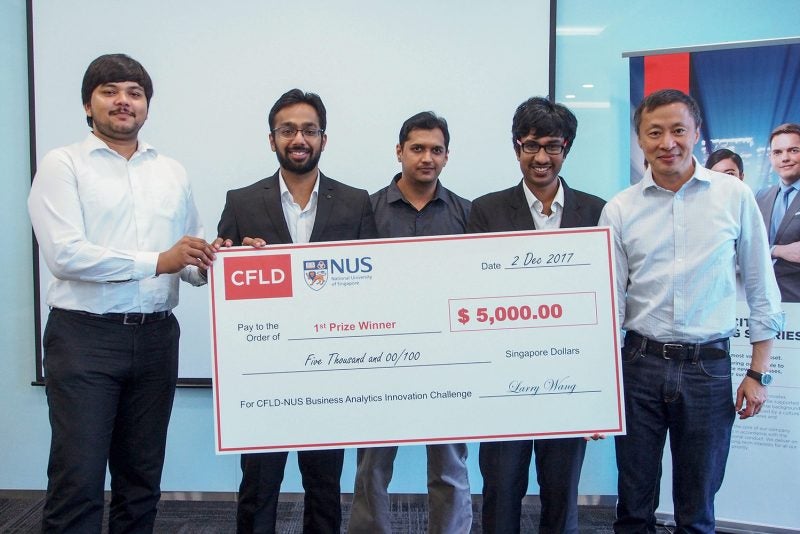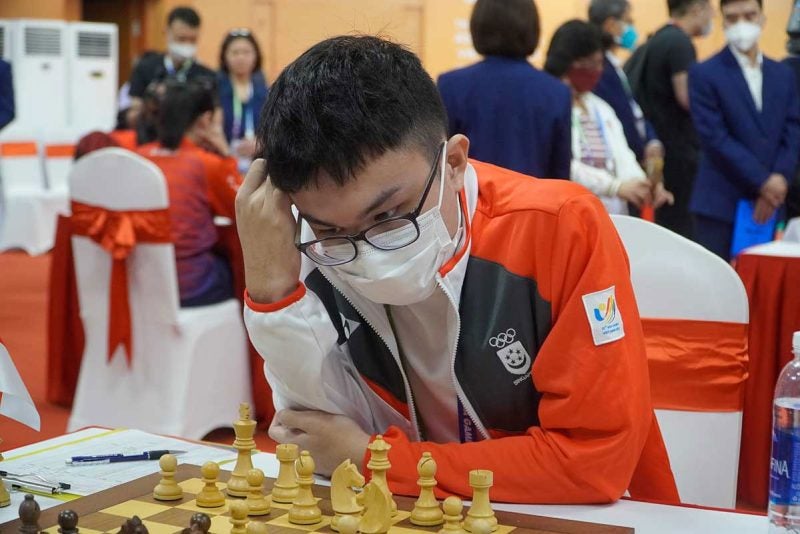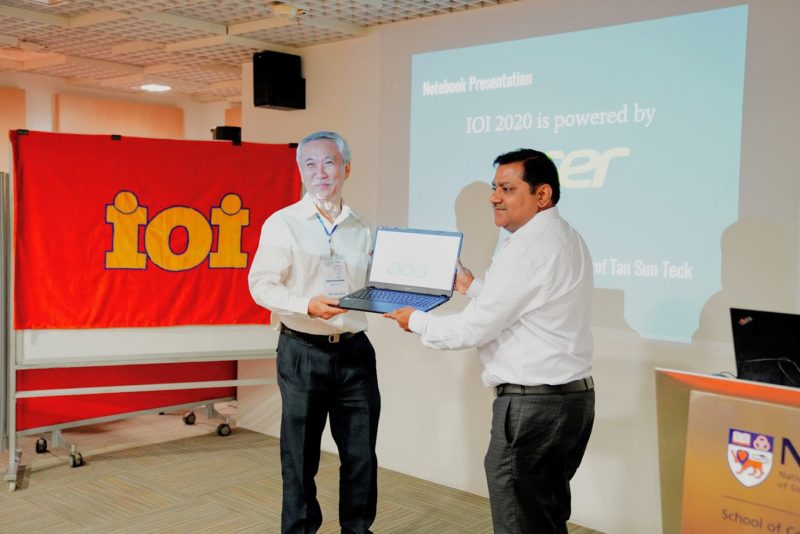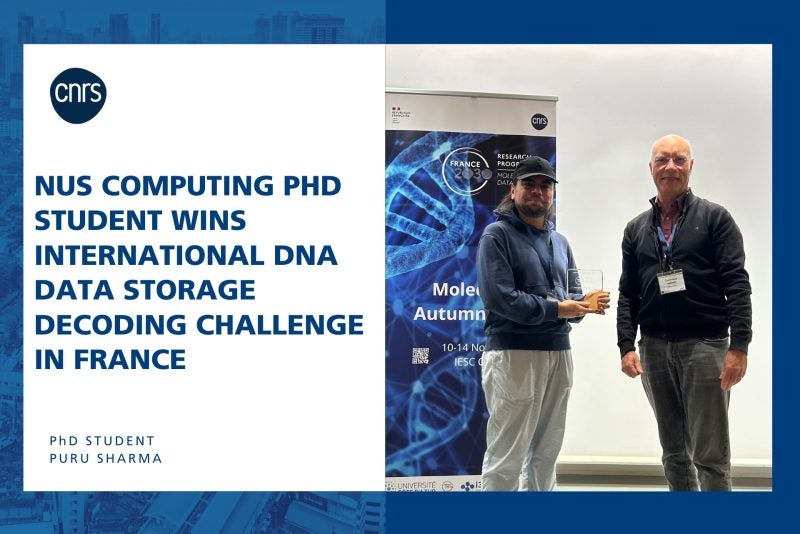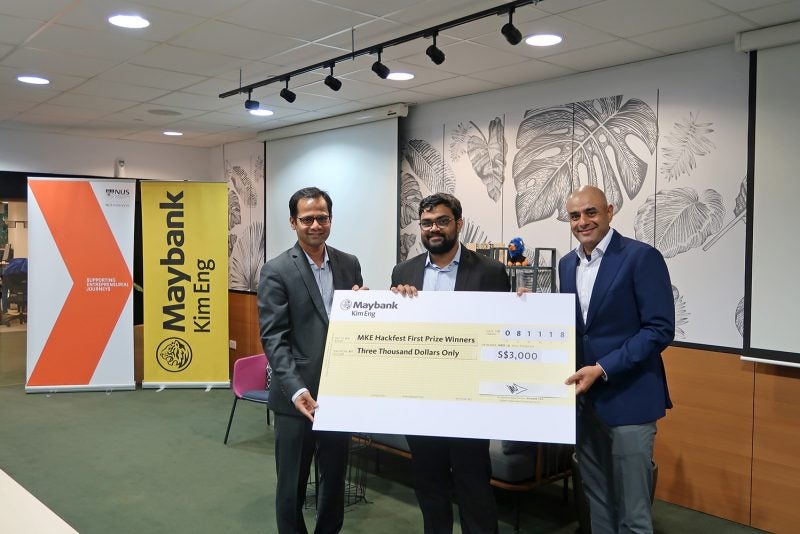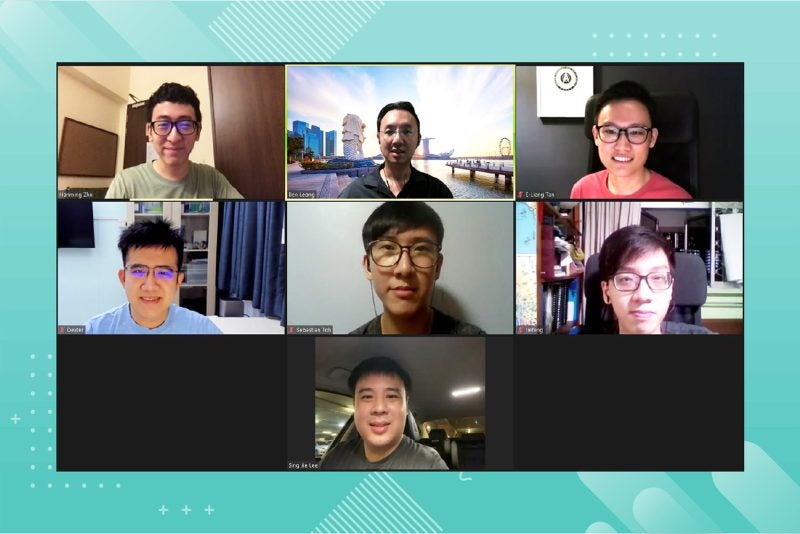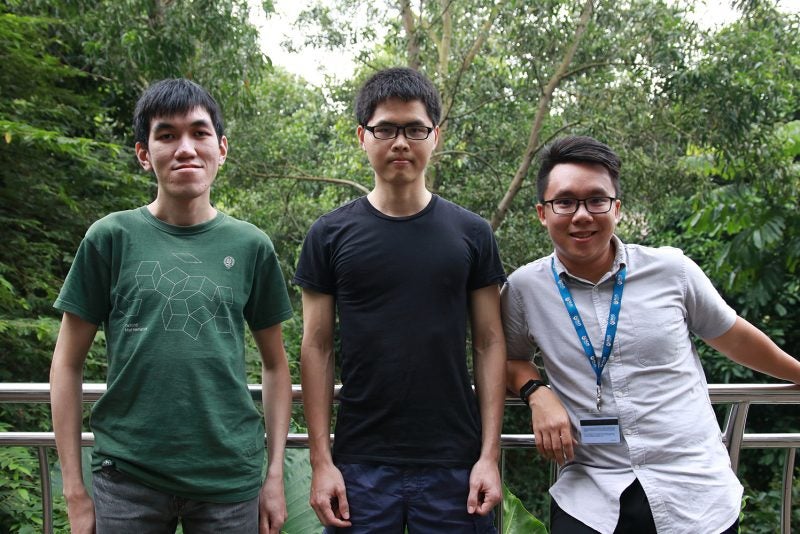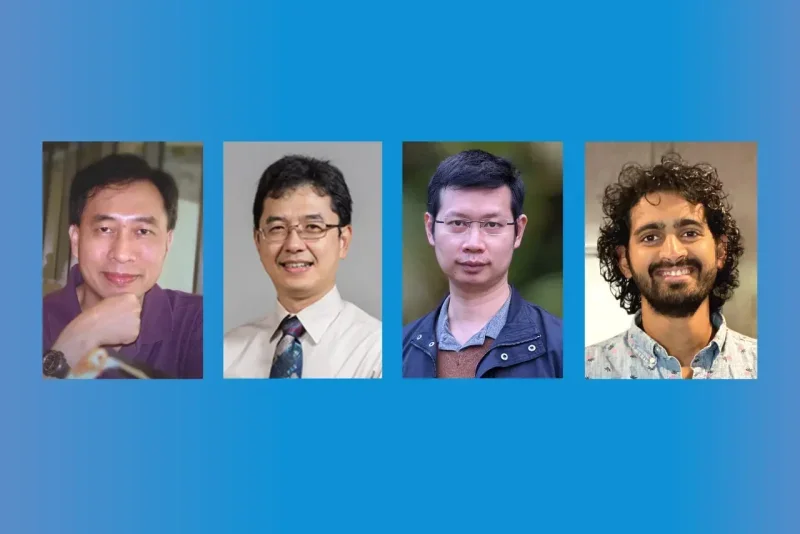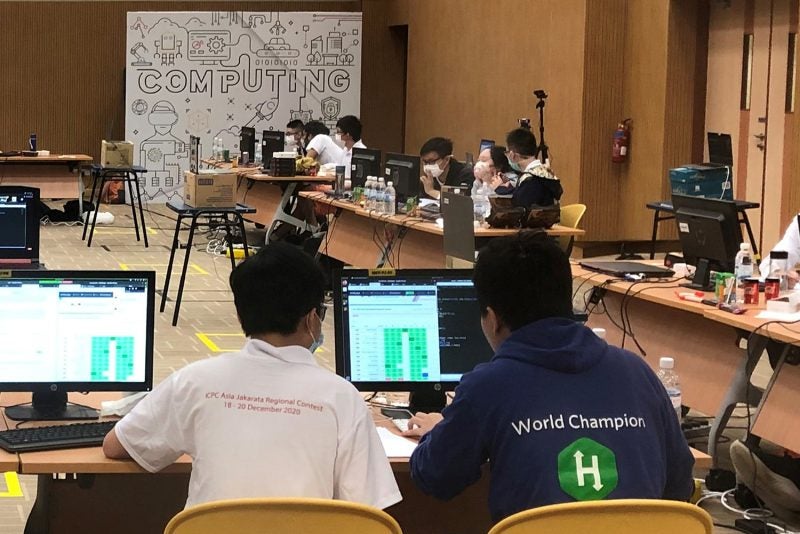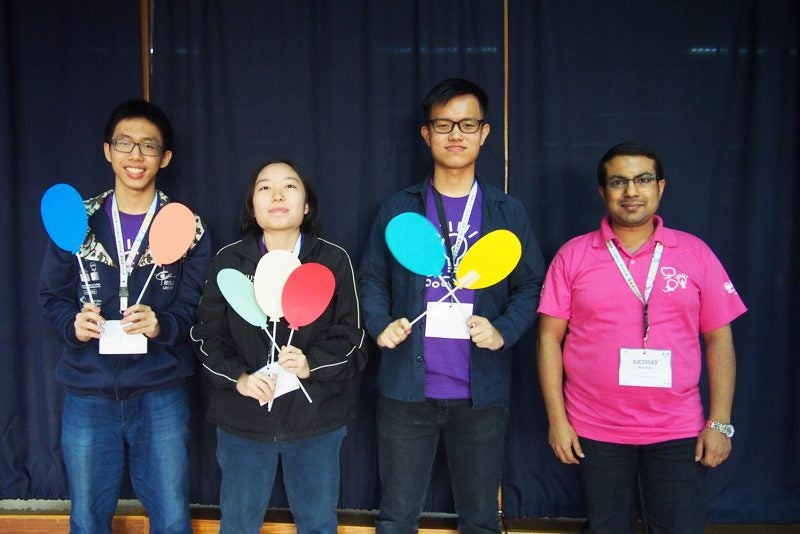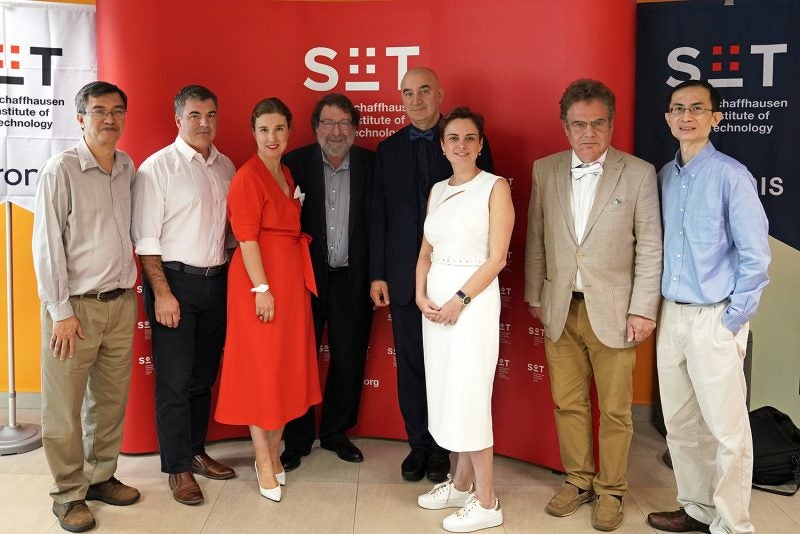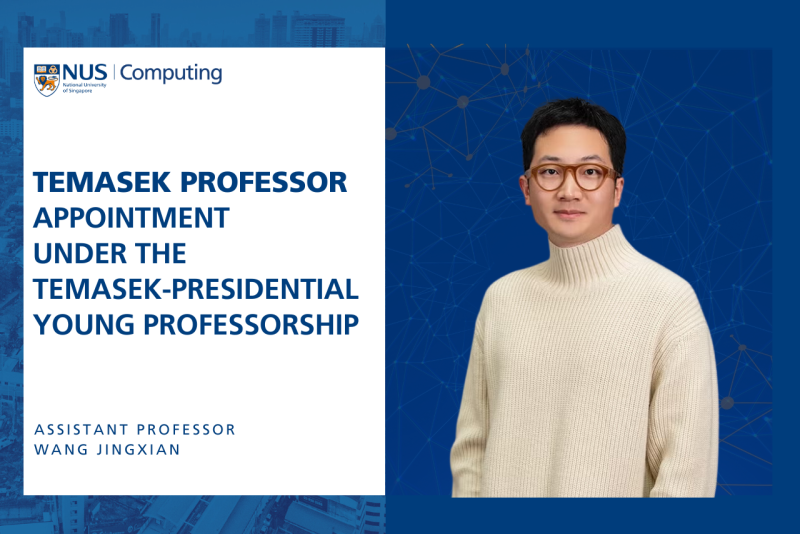16 April 2019 – Second year Computer Science student David Kum and his NUS teammates won first place in HackMentalHealth UCSF 2019. The team won the 24-hour Bay Area mental health hackathon held from 23 to 24 March at the University of California San Francisco (UCSF), USA.
David, currently on a year-long NUS Overseas Colleges (NOC) programme in Silicon Valley, partnered with fellow NOC Silicon Valley students Heng Chun Kiat (Business Administration Year 2), Jerron Lim (Mechanical Engineering Year 3), and Leong Chang Jie (Mechanical Engineering and Business Administration Year 3), to win the top award. 61 teams competed in the hackathon dedicated to promote mental health well-being and revolutionise mental healthcare through technology and innovation.
According to the team, research by the University of Ohio found that one in 17 people in USA suffer from Compulsive Buying Disorder (CBD) – a mental health condition characterised by distress or impairment that can only be alleviated through excessive spending. “With the prevalence of online shopping platforms, like Amazon, people with CBD find it harder to break their compulsive behaviour due to the convenience and ease of online shopping,” explained David, on behalf of his team.
After analysing the popular e-commerce platform, the team concluded that Amazon’s Buy Now button on their website has a detrimental effect on shoppers with CBD due to the easy process of buying items on the site. “Amazon and other online shopping platforms simplify the buying process on their sites but this makes it even more difficult for people with CBD to break from the cycle,” David added. “We decided that a simple way to get people to think about their spending is to reintroduce some friction into the checkout process at Amazon.com. Our solution should not detract users from their shopping experience, but it needs to create enough friction to spark further thinking about the purchase.”
As such, David and his teammates developed a Google Chrome extension, called Amazoff, that displays small nudges for users to reconsider their purchasing decisions. With their extension, it removes the one-click Buy Now button from all Amazon pages, hides products from Amazon’s frontpage, replaces the price of item with figures related to daily life (i.e. percentage of utility bills that can be paid for with the money), and removes all suggested items and advertisements.
To prompt users to think about their decisions, the extension sends an alert when users hover over the Add to Cart button and shows another price comparison to contextualise the price of the item. At the checkout page, a popup box will appear to remind users of the amount they have spent. Furthermore, after a user has visited an Amazon product site five times, the extension will prompt the user of the time they have spent on the e-commerce site.
“Based on our research and the response we received during the competition, compulsive online shopping is an issue that resonates with people, regardless of whether they suffer from CBD or not,” said David. “We spent much of our time thinking about our product design and to ensure that it does not make online shopping too insufferable for many. It has been an enjoyable experience for myself and my team.”

